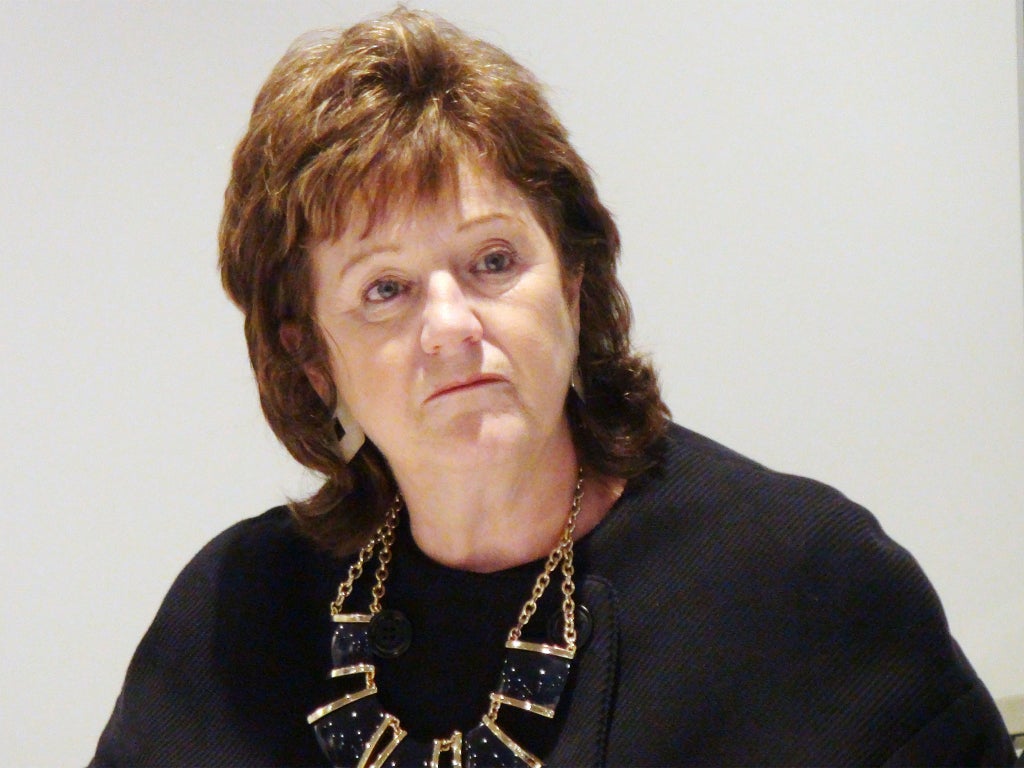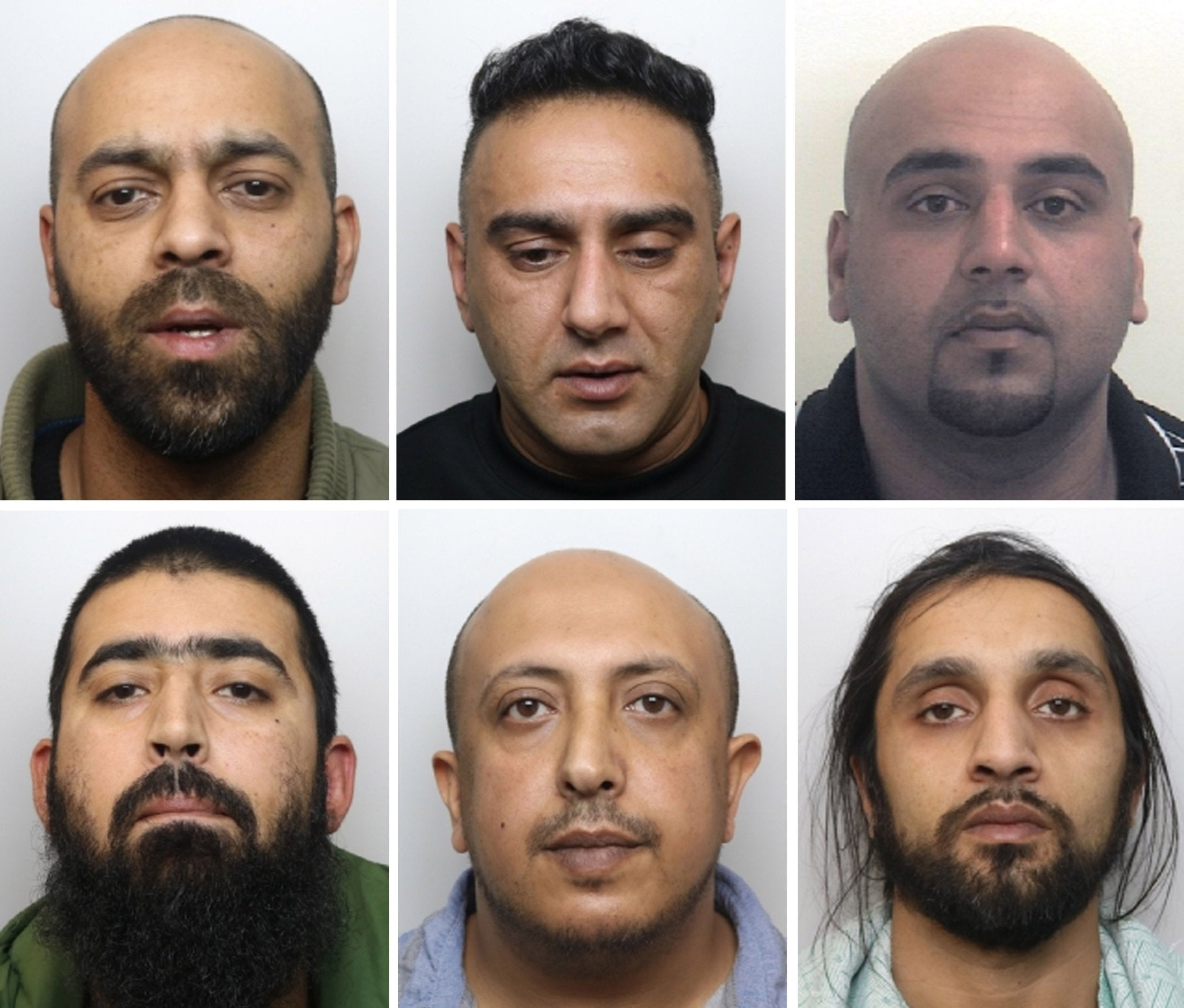
Children are still being sexually exploited by grooming gangs in all parts of England and Wales in the “most degrading and destructive ways”, a report has found.
The Independent Inquiry into Child Sexual Abuse (IICSA) said assumptions that abuse had fallen since high-profile cases in Rotherham and Rochdale were “flawed”.
A report published on Tuesday exposed “extensive failures” by councils and police, leaving victims being treated as offenders, while perpetrators are not investigated or prosecuted.
Professor Alexis Jay, chair of the inquiry, said: “The sexual exploitation of children by networks is not a rare phenomenon confined to a small number of areas with high-profile cases.
“It is a crime which involves the sexal abuse of children in the most degrading and destructive ways, by multiple perpetrators.
“We found extensive failures by local authorities and police forces in the ways in which they tackled this sexual abuse. There appeared to be a flawed assumption that child sexual exploitation was on the wane, however it has become even more of a hidden problem and increasingly underestimated.”
Sarah Champion, the MP for Rotherham, said the report “finally recognises the horror of grooming gangs and that victims and survivors have for so long been let down”.
“This is the 18th report published by IICSA, costing tens of millions of pounds each year, but child abuse is still flourishing and little real change has taken place,” she added.
“This must be the moment that we see urgent action to prevent further abuse happening.”
IICSA found that a lack of data made it impossible to say if some ethnic groups are disproportionately more likely to be perpetrators or victims, and that “it is unclear whether a misplaced sense of political correctness or the sheer complexity of the problem have inhibited good-quality data collection”.
The report said that despite being made a “strategic policing priority” since 2015, less is now known and understood about the prevalence of child sexual exploitation.
It encompasses abuse by organised networks, including trafficking and county lines drug gangs, who “coerce, control, groom, manipulate or deceive” victims into sexual activity.
Abusers often use alcohol, drugs and violence, as well as kindness and affection, to control their victims, IICSA said.
Some children are coerced into taking or sharing indecent images on phones or photographed, creating material that can then be used to blackmail or shame them into further exploitation or criminal activity.
The report said that some victims are initially contacted in person, but some are initially groomed online through social media and dating apps, before being sexually exploited by multiple perpetrators.
The report found that many exploited children are often in care or vulnerable, with childhoods characterised by neglect, substance abuse and domestic violence.
It warned that data on the scale of the abuse is flawed, with gaps in police, council and education data because of recording practices.
The Home Office made it a requirement for police to officially flag child sexual exploitation offences in 2016 but IICSA said the label was “subjective and variable”.
In 2019-20, police forces in England and Wales identified more than 12,500 criminal offences as related to child sexual exploitation, but the Crown Prosecution Service does not collect the same data as cases progress.
Separately, council assessments that identified child sexual exploitation as a factor rose from 12,200 to 18,700 over the five years to March 2020.
The report said that poor data collection also “makes it impossible to know whether any particular ethnic group is overrepresented as perpetrators of child sexual exploitation by networks”.
“Many of the high-profile child sexual exploitation prosecutions have involved groups of men from minority ethnic communities,” the report added.

“The failure to collect data on the ethnicity of the perpetrators and victims has led to a one-sided and often uninformed public debate, where links have been made between ethnicity and a number of high-profile cases involving South Asian men.
“Allowing this debate to continue without providing a proper context allows an accusatory style of debate in the public domain which is both unhelpful and divisive.”
IICSA said that accurate ethnicity data would improve the understanding of child sexual exploitation and help prevention work by police and councils.
The report warned that currently, too many victims were being treated as offenders or somehow responsible for being abused, while perpetrators are going free.
Several children who gave evidence to the inquiry were themselves charged with or convicted of criminal offences which closely linked with their sexual exploitation, while still being abused.
Long-term consequences for victims included poor mental health, depression, eating disorders, post-traumatic stress disorder, self-harm and suicide attempts.
There were also lifelong effects on education, drug misuse and relationships, as well as physical injuries and unplanned pregnancies.
IICSA found that council services were describing children being “at risk” when there was evidence they had already been harmed, such as by contracting sexually transmitted infections, going missing or being sexually abused at “house parties” organised by perpetrators.
“Despite receiving a welcome higher profile in recent years, some of the processes in place to identify and deal with child sexual exploitation have created an institutional hesitancy to intervene and take the necessary action to protect children and catch perpetrators,” the report said.
It used case studies from six areas – Durham, Swansea, Warwickshire, St Helens, Tower Hamlets and Bristol – chosen for their range of sizes, locations and demography.
“The case study material showed that there were cases of child sexual exploitation by networks in all six case study areas but the police forces in these areas were generally not able to provide any evidence about these networks,” IICSA said.
Swansea and Tower Hamlets said it had no confirmed cases of child sexual exploitation but acknowledged networks may exist.
The report made a series of recommendations, including changes to sentencing law to make child sexual exploitation a factor that would increase punishments.
It called for the government to publish a new “disruption toolkit”, updated guidance on child sexual exploitation, and to stop victims being placed in care situations where abusers can target them.
“We recommend that police forces and local authorities in England and Wales must collect specific data – disaggregated by sex, ethnicity and disability – on all cases of known or suspected child sexual exploitation, including by networks,” IICSA added.







